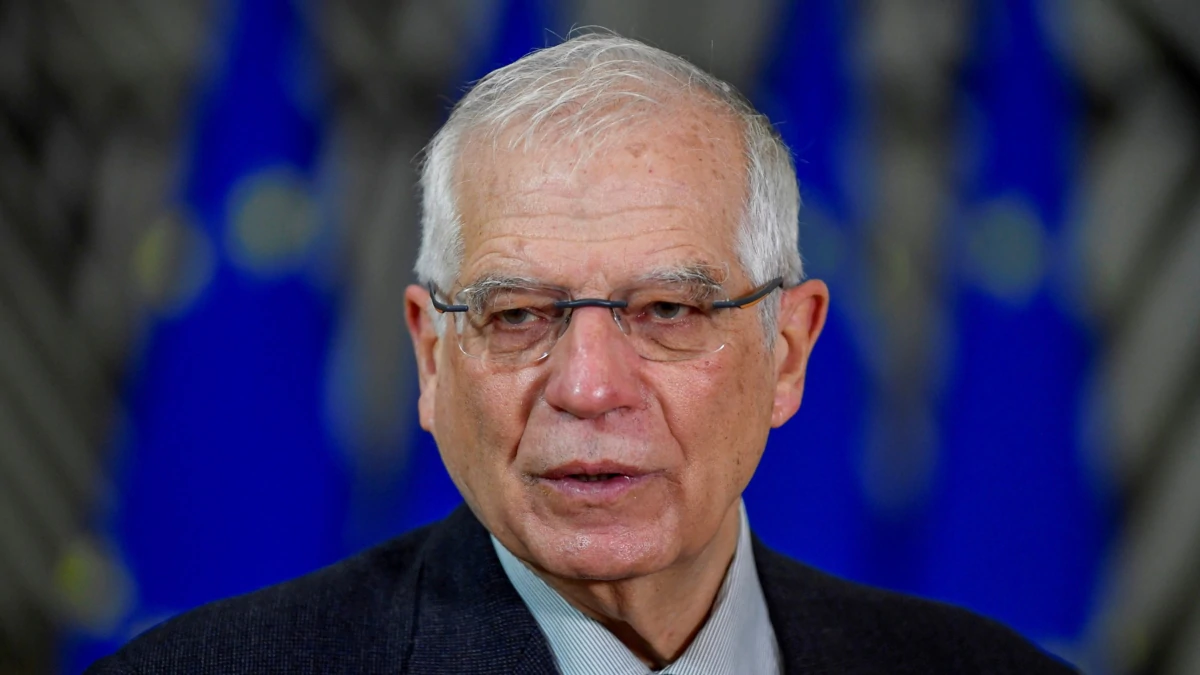
The European Union’s top diplomat is expected to challenge Moscow over the detention of Aleksei Navalny and a crackdown on anti-government protesters when he meets Foreign Minister Sergei Lavrov on February 5.
EU foreign policy chief Josep Borrell is expected to deliver a strongly worded message during the meeting following terse exchanges between Moscow and the bloc.
Borrell, who arrived in Moscow on February 4, said Russia and the EU see each other as “rivals and competitors.”
“We have strong disagreements when it comes to the conflicts in our immediate neighborhood, from Ukraine and Belarus to Libya and Syria, and when it comes to human rights and fundamental freedoms,” he told the Interfax news agency.
European countries have sharply condemned Navalny’s imprisonment and Russia’s response to a wave of nationwide anti-Kremlin demonstrations.
Many EU countries along with the United States also have demanded that Moscow release Navalny, who survived a nerve-agent poisoning in August that the Kremlin critic accuses Putin of ordering.
“We have made our position very clear on the poisoning of Aleksei Navalny, his arrest and that of thousands of demonstrators over the past days,” Borrell said, according to Interfax.
President Vladimir Putin’s spokesman said that Russia wants an improvement in relations with the EU and to reopen dialogue. But Dmitri Peskov conceded that unresolved differences between Russia and the EU were “pretty big” in number.
Peskov also told journalists that Russia rejected outside interference in its internal affairs.
Borrell said his visit was “not about meddling in internal affairs,” rather “universal principles and international commitments.” He cited Russia’s has signed on as a member of the Council of Europe and as a participating state of the Organization for Security and Cooperation in Europe.
Navalny was sentenced on February 2 to almost three years in jail for violating the terms of parole while recovering in Germany from the poisoning.
.
He is due in court again on February 5 for allegedly defaming a World War II veteran who took part in a promotional video backing last year’s constitutional reforms, which open a path for Putin to stay in power until 2036 if he chooses to take part in two more presidential elections.
He was charged after describing the veteran and others who appeared in the pro-Kremlin video as “the shame of the country” and “traitors” on Twitter in a June.
Navalny said last summer that the case was part of an unrelenting campaign to stifle his campaign against the Kremlin.
In his first major comments since he was sentenced, Navalny on February 4 called on Russians to overcome fear and free the country from “a bunch of thieves in power.”
Navalny said in an Instagram post that “iron doors slammed behind my back with a deafening sound, but I feel like a free man because I feel confident I’m right and thanks to support from you and my family.”
U.S. President Joe Biden expressed his support for Navalny later in the day, calling the jailing of the Putin critic a “matter of deep concern to us and the international community” and demanding Russia release him “immediately and without condition.”
The Kremlin continues to reject Western and domestic criticism over its jailing of Navalny and a crackdown on his supporters, accusing the West of hysteria and double standards.
The detention of the popular activist upon his return to Russia in mid-January sparked some of the largest anti-government protests in a decade as hundreds of thousands assembled in more than 100 cities around the country. Police detained some 10,000 people in total during the January 23 and January 31 protests.
More than 1,400 people were also detained when demonstrators took to the streets following the court’s order to send Navalny to prison. Many of Navalny’s aides have been detained, fined, or put under house arrest.
Leonid Volkov, a close aide to Navalny, called for fresh demonstrations later in the year rather than on the weekend of February 6-7 to give the opposition more time to prepare.
“We will properly organize them and definitely hold another big one in spring and summer,” he said in a YouTube live stream.
Russia will hold key parliamentary elections on September 17. Navalny and his team are encouraging citizens to vote for politicians running against candidates from the pro-Putin United Russia party.